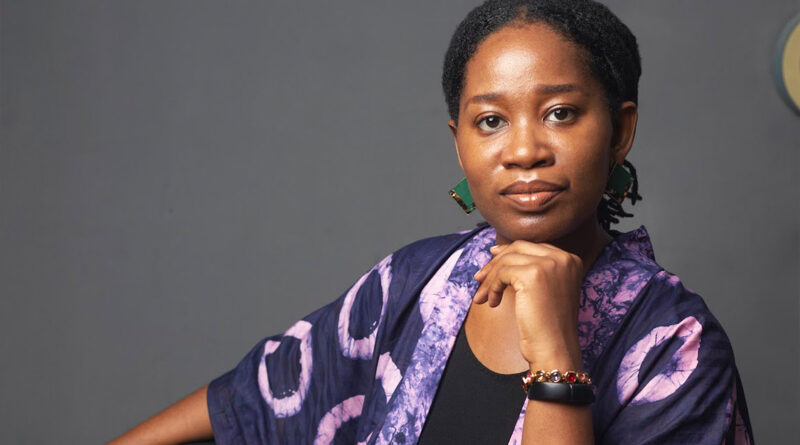Amplifying Local And Indigenous Voices In Audio Production
Storytelling, in its many forms, is a powerful way to connect people in and across generations, communities, borders and cultures. When delivered through audio, it allows for an even deeper connection, as the human voice brings written word to life. Local and indigenous voices — those speaking in accents, expressions, speech patterns and languages truest to a story – make for a more authentic and culturally rich experience.
The rise of audiobooks over the last few years has revived the glory of oral storytelling, reclaiming its power to convey stories in their most natural and expressive form. This has been made possible by advances in audio technology – from the mp3 audio file type developed in 1991 to the proliferation of audio apps and smartphones in the last decade. Think about it – we humans spoke and listened before writing. Oral tradition is the original and most indigenous of storytelling forms. Alphabets and writing are themselves technologies that have allowed messages and stories to be shared across location and time – an original limitation of the spoken word. What is lost or at least not fully captured in the written text is the flavour of speech. Approximated by phonetic spelling as it often is, the rhythm of speech is constrained on a page. Audio technology removes these shackles – allowing stories to be passed across space and time – all while maintaining the flavour of sound expression.
So, what then does it mean when the unique charm of audio, in delivering a tales soul through sound, is lost to voices that betray the story’s rhythms? This robs the tale of its cultural heartbeat, leaving instead hollow echoes. There is a reason why the Harry Potter audiobooks are read by British actor Stephen Fry while The Great Gatsby set in Long Island and New York are read by American actor Jake Gyllenhaal. Can you imagine George Clooney voicing Harry Potter? It would be a travesty – talented as he may be. Unfortunately, there are several examples of English works by popular Nigerian and Jamaican authors narrated by skilled voices that nevertheless sound nothing like the characters would in real life. When this happens, it is a disservice to all involved – a disservice to the story, the author, the narrator’s skills and to the audience as well. For an audience not familiar with a Nigerian accent, a Nigerian character voiced by a Brit or Sierra Leonean robs them of a truer listening experience while for an audience familiar with what the character should sound like, an untrue voice alienates them at worst and annoys them at best. I know annoyance has been my experience.
The good news is that this is changing with publishers, authors and voice actors becoming more alive to the importance of local voices and more alive to their role in making this a reality. Whether it be the author insisting on pre-approving their novel’s narrator or the narrator rejecting a role and recommending a better suited talent, or a publisher starting a global narrator mentorship program welcome to all accents – these steps are increasing local voices in audio productions. As we can see from these examples, by centring local voices, the creative ecosystem also thrives, offering opportunities for newer voice talent and sound producers to emerge and contribute to the preservation and celebration of diverse storytelling.
Indigenous Language Storytelling
So far, my examples have shown the importance of local voices in the English language. But it is also worth noting that the centering of diverse voices in audio production also expands storytelling in indigenous and non-dominant languages both in their original form and in translation. This expansion of possibilities is most felt where there is a great oral tradition but limited literacy in a language. I can speak personally to this. My first language and words were in Igbo and while I remain fluent, my reading of it is limited. With English as the language of instruction throughout my education in Nigeria, I never learned how to read or write Igbo – not until recent personal forays. Across Nigeria’s 500+ languages and acrossso many other oral-first languages in the world, this is a familiar story. This often explains the gap between high listenership of local language radio plays and stories as compared to lower readership.
Indigenous voices therefore bridge this gap, allowing stories to be heard and shared by wider audiences. Kenyan author Ngugi wa Thiongo’s paints a powerful picture of his Gikuyu work, Caitaani Mutharaba-Ini (Devil on the Cross) being read in bars, buses and at family gatherings to much engagement. And this is not only relevant for indigenous language storytelling in their original form.
Indeed, local voices can be combined with translation to bring wide-resonating stories of humanity to new communities or to bring stories to life for communities in the languages they most resonate with. This is well understood by Christian evangelists who are at the frontier of bringing the Bible to local languages even when those communities also understand more widely used languages. In non-religious contexts, we also see this in the translation and audio productions of English works to other European languages. Indeed – Chimamanda’s Half of a Yellow Sun has a Dutch audiobook version despite 90% of the Netherland’s 18 million first language Dutch speakers being fluent in the books original – English! To hear a story in the language of one’s heart brings that story to life in unique ways. This would be impossible – just impossible without indigenous and local voices.
Genti Audio: A Case Study in Amplifying Local Voices
At the Nigerian media tech startup – Genti Audio (which I lead as a Cofounder and CEO), we’ve embraced the mission of amplifying African voices and languages through audio storytelling. Our very name, “Genti” which comes from the Igbo word – “to listen”, is a testament to this. Our focus on platforming content in local voices and language has allowed us to cater to a deep desire for culturally resonant stories. About 80% of the ~2 million minutes listened on our platform since launching in August 2023 has been driven by local language content. Hausa (where a thriving written and audio culture thrives – both for classics like Abubakar Imam’s Magana Jarice to contemporary romance storytelling) led as the top-performing category on the Genti Audio app, with Pidgin set to take the lead soon.
Even the most popular English-language content, like Chronicles of a Runs Girl by Leye Adenle and 225 Katakata Street by Centino, feature local voices. Their accents bring out the distinctive tones and rhythms of Nigerian English, enhancing the stories in their authentic form. Responding to requests for locally narrated versions of African classics – those in English and local languages – we are reaching out to the several estates and rights holders of the Heinemann African Writers Series (English) and the likes of Yoruba novelist DO Fagunwa, and Igbo novelists Pita Nwana and Tony Ubesie – with the aim of converting these works into audio. These classics, if read by locally resonating and culturally accurate voices would not only preserve iconic African literature but also make it accessible to a new generation of listeners who crave authentic audio storytelling.
In conclusion, amplifying local and indigenous voices in audio production is crucial for preserving cultural heritage, fostering representation and enriching global storytelling. As the demand for these stories continues to grow, so too does the opportunity for diverse voices to shape the future of global storytelling.




